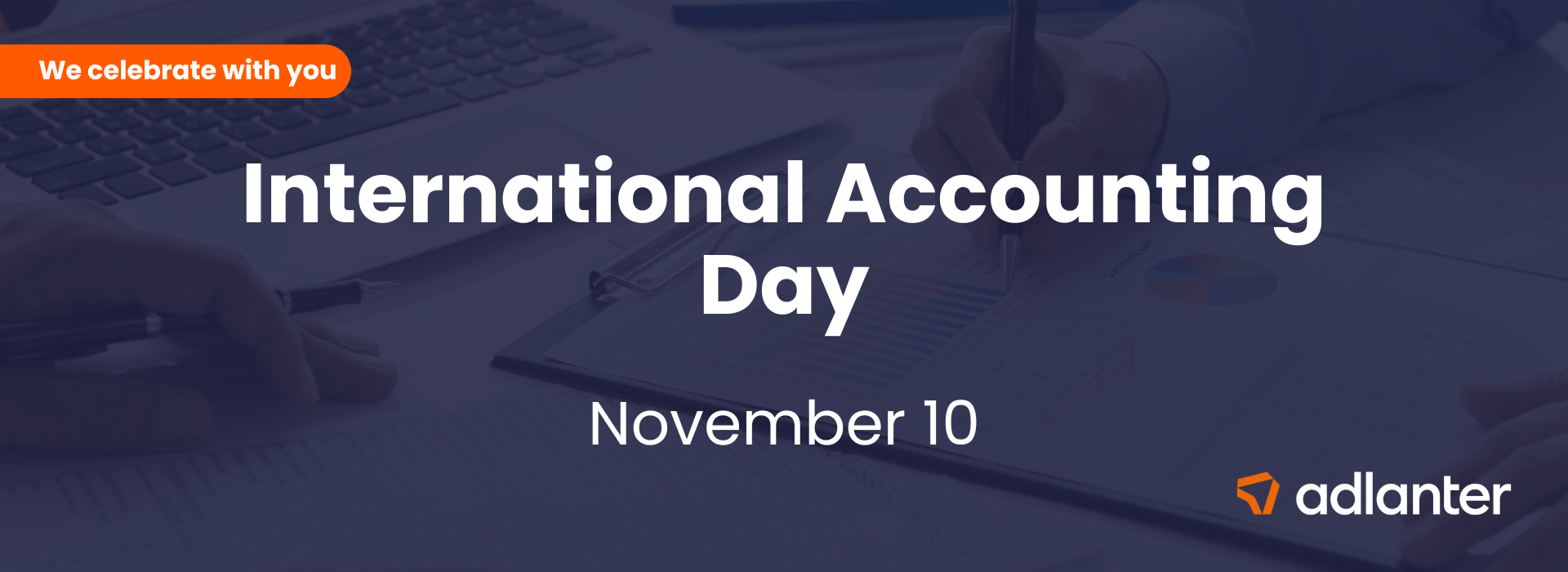The new smart accounting driving businesses in Spain
From the first commercial ledgers of the 15th century to real-time data: this is how accounting has evolved into a strategic tool.
11/11/2025

📝- Index

November 10: International Accounting Day
On November 10, International Accounting Day, it’s a great opportunity to remember that accounting is not just a record of numbers: it is the language that allows you to understand, plan, and make business decisions.
In Spain, its evolution has gone hand in hand with economic progress: from paper to digital systems, from simple transaction control to a driver of business intelligence. Today, companies that interpret their financial information are the ones that make better decisions… and grow faster.
A brief journey through 600 years of accounting in Spain
15th – 17th centuries: the birth of accounting records
- 1408 — Taula de Canvis (Valencia): first municipal public bank with auditable records.
- 1549 (Cigales) and 1552 (Madrid) Pragmatics: mandatory use of double-entry bookkeeping and accounting books (Journal and Ledger).
- 1592 — Philip II incorporates double-entry in the Royal Treasury: accounting becomes a financial control tool for the State.
Accounting emerges as a synonym of reliability and transparency.
18th – 19th centuries: accounting becomes a standard
- 1737 — Bilbao Ordinances: obligation to prepare balance sheets and keep accounting books.
- 1850 — Administration and Accounting Law: aims to apply double-entry bookkeeping to public administration as well.
Accounting ceases to be a voluntary practice and becomes a legal requirement.
1885: the Commercial Code changes everything
- Establishes organized, clear, and rigorous accounting (arts. 25 and 29).
- Specifies mandatory books (Journal and Inventory & Annual Accounts Book).
Accounting gains legal and commercial weight.
20th century: a unified accounting language
- 1973 — First General Accounting Plan (PGC): standardizes accounting criteria across all companies.
- 1988 — Creation of ICAC: body regulating accounting and auditing.
Accounting becomes a tool for business communication.
21st century: internationalization and digitalization
- 2007 — New PGC adapted to International Standards (IFRS): enables global comparability.
- Automation, cloud software, dashboards, and financial analytics.
Accounting moves from historical to predictive and strategic.
The current era: from accounting data to strategic data
Today, accounting is undergoing a new revolution. Automation, financial analytics, and data intelligence are radically transforming business management. In this context, full-service advisory firms play a key role, acting not just as managers but as strategic partners in decision-making.
At Adlanter, we see accounting as the starting point to create value. Our accounting team not only ensures regulatory compliance but also interprets financial information to help companies grow sustainably.
The integration of digital tools, personalized advisory, and an international perspective allows our clients to turn accounting data into strategic information.
Do you want your accounting to work for your business?
The history of accounting in Spain shows that economic progress has always required order, transparency, and rigor. Today, digitalization and automation are rewriting the accountant’s role, but the essence remains the same: guaranteeing the economic truth of organizations.
At Adlanter, we feel part of this historical evolution. If you want to turn your numbers into decisions, consult and request accounting advisory here.

Do you have any questions?
If you have any questions after reading "The new smart accounting driving businesses in Spain", we are here to help you.
Let's talk. We guide you clearly and step by step.
